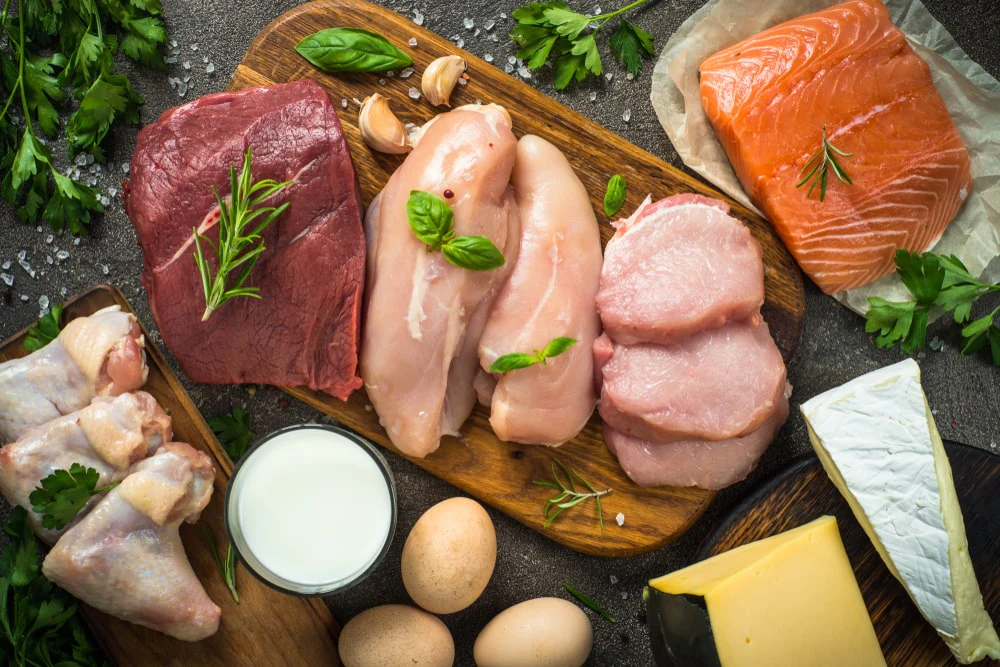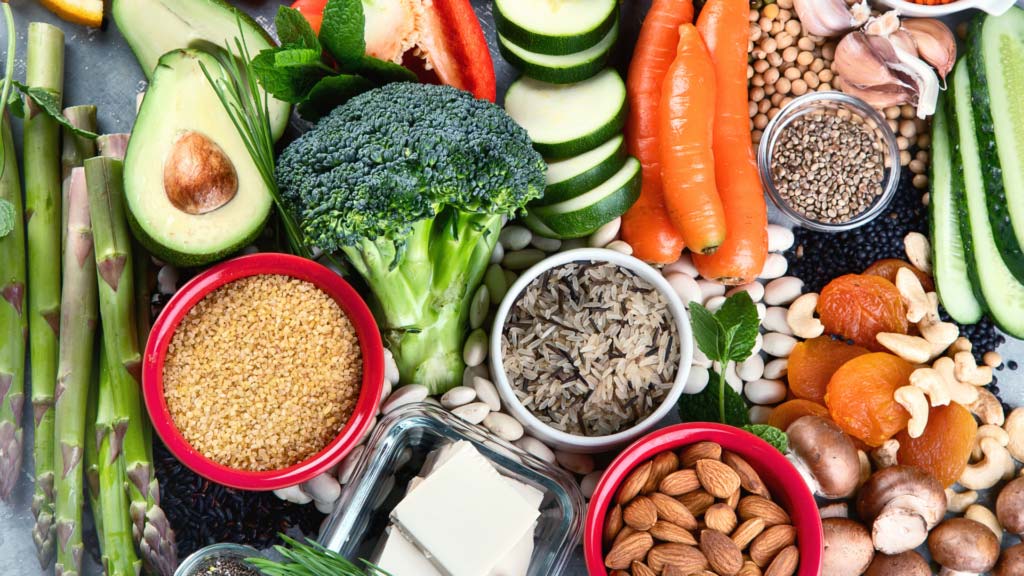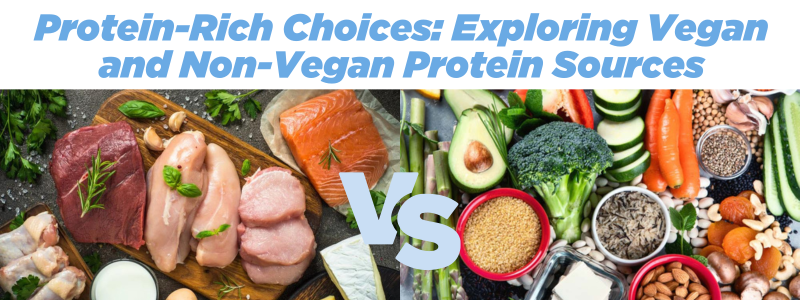Protein serves as a fundamental component of your body, crucial for repairing and building muscles, supporting immune function, and maintaining overall health. Whether you’re an athlete aiming to recover faster after workouts or simply looking to enhance your well-being, ensuring an adequate protein intake is essential.
Animal-Based Protein Sources / Non-Vegan

- Chicken Breast: A lean option providing 31 grams of protein per serving.
- Tuna: Rich in omega-3 fatty acids and offering 30 grams of protein per serving.
- Turkey Breast: Provides 29 grams of protein and is low in fat.
- Pork Loin: Contains 27 grams of protein and is versatile for various dishes.
- Tilapia: With 26 grams of protein, it’s a light fish option.
- Lean Beef Mince: Offers 26 grams of protein and is great for ground meat recipes.
- Lean Steak: Contains 25 grams of protein and is a classic source of iron.
- Cheddar Cheese: A dairy option providing 25 grams of protein.
- Shrimp: A seafood choice with 24 grams of protein per serving.
- White Fish (e.g., cod): Provides 20 grams of protein and is low in calories.
- Salmon: Rich in omega-3s and offering 20 grams of protein.
- Egg (whole): Contains 13 grams of protein and essential vitamins.
- Cottage Cheese (1% fat): A lower-fat dairy choice with 12 grams of protein.
- Egg Whites: Low in fat and high in protein, offering 11 grams per 100 grams.
Plant-Based Protein Sources / Vegan

- Spirulina: A superfood with 57 grams of protein per serving.
- Nutritional Yeast: Contains 50 grams of protein and is a vegan cheese substitute.
- Hemp Seeds: Provide 31 grams of protein and are rich in healthy fats.
- Peanuts: A snack with 25 grams of protein and good fats.
- Almonds: Offer 21 grams of protein and are a nutrient-dense nut.
- Black Beans: Provide 21 grams of protein (dry) and are versatile in recipes.
- Pumpkin Seeds: Contain 19 grams of protein and are high in magnesium.
- Chickpeas: Offer 19 grams of protein (dry) and are great for hummus.
- Tempeh: Contains 19 grams of protein and is a fermented soy product.
- Chia Seeds: Rich in fiber and omega-3s, with 17 grams of protein.
- Greek Yogurt: Provides 10 grams of protein per 100 grams and is probiotic-rich.
- Edamame: Contains 11 grams of protein and is a soybean powerhouse.
- Lentils: Offer 9 grams of protein when cooked and are high in fiber.
- Tofu: Provides 8 grams of protein and is a staple in vegetarian diets.
- Quinoa: A gluten-free grain with 4 grams of protein per cooked serving.
Balancing Your Protein Intake
To optimise your protein consumption:
- Set Goals: Aim for 20-30 grams of protein per serving to meet daily needs.
- Portion Control: Adjust portions based on your activity level and goals.
- Meal Balance: Incorporate proteins with fats and carbohydrates for balanced nutrition.
- Varied Choices: Mix animal-based and plant-based proteins for a diverse diet.
Protein isn’t just about quantity; it’s about quality and balance. By integrating these protein-rich foods into your meals, you can support your body’s needs efficiently, whether you’re striving for muscle growth, weight management, or overall well-being.
It’s time to take the next step towards a healthier, stronger you. Start by setting clear goals and using effective tracking methods to monitor your progress along the way. Learn more about progress tracking on our blog here: https://fitnfearlesspt.com/the-power-of-progress-tracking-celebrating-your-fitness-journey/


